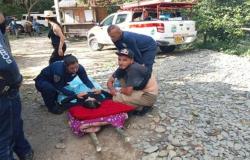He Ministry of Health provincial reported last Friday 10,700 new cases of dengue In cordoba. At the same time, health authorities indicated that the circulation of the virus began to decrease and recommended maintaining prevention measures.
The number of total reports rose to 108,097according to data from the Epidemiology Directorate. Meanwhile, the total number of deaths rose to 47. No new chikungunya infections were detected. In total, 39 positive diagnoses were computed for this virus, which is also transmitted by Aedes aegypti. Of them, 33 were native.
The report pointed out that the majority of cases occurred in the population between 20 and 24 years old (the average was 29 years old). Regarding the level of complexity, 4.5% of those infected needed hospitalization and the rest returned home the same day. Although more than 50% of the cases corresponded to the provincial capital, the highest incidence was recorded in inland towns.
“Dengue is in decline although chikungunya and Zika could persist,” declared the Minister of Health, Ricardo Pieckenstainer, in statements to the press. For this reason, the official added that “regarding the current health situation, we are in an epidemiological transition.” “Covid-19 is a disease that has been present throughout the year and at the same time the presence of respiratory diseases in children and adults is expected later,” he said.
Although the drop in temperature contributes to the decrease in cases, health authorities recommend maintaining preventive measures such as cleaning debris and avoiding mosquito bites. For example, Nora Glatstein, president of the Epidemiology Society of Córdoba, indicated days ago that preventive measures must be taken throughout the year, while she stressed that all mosquitoes must be eliminated, not just those that cause dengue. “Due to climate change, Argentina became a tropical and subtropical country. This favors the presence of Aedes aegypti for longer. As we have cases all year round, prevention should be done in winter and summer. If we wait until September, we will be late,” said Glatstein.
In turn, the dean of the Faculty of Medical Sciences of the National University of Córdoba (UNC), Rogelio Pizzi, reiterated the importance of immunization: “The dengue vaccine reduces severe forms by 62% (…) In addition, it reduces hospitalizations by 84%,” and recalled that the vaccine is already approved by the National Administration of Medicines, Food and Medical Technology (Anmat). Meanwhile, the provincial government together with the municipalities continues with fumigations in the different cities of the province, especially in those sectors in which suspicious cases were detected.






